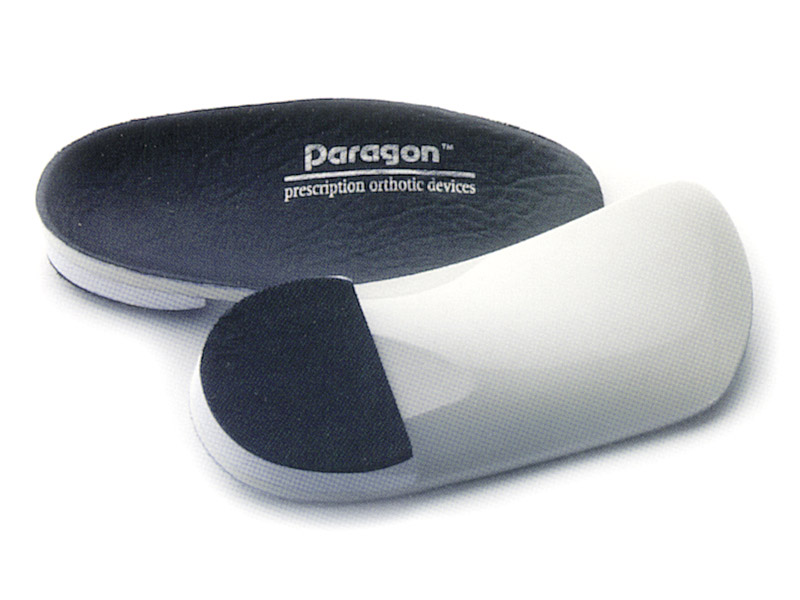High arches, also known as pes cavus, are a less common foot condition where the arch of the foot is significantly raised. Unlike flat feet, which are more easily recognized and discussed, high arches often go unnoticed until they begin causing discomfort or pain. But do people with high arches need foot orthotics? The answer depends on the symptoms, alignment issues, and long-term risks associated with the condition.
Understanding High Arches
The arch of the foot plays a critical role in absorbing shock and distributing weight evenly with every step. In people with high arches, this function is compromised. The foot tends to be less flexible, and instead of distributing forces evenly, the pressure is concentrated on the ball and heel of the foot. This altered weight distribution can cause several problems, including:
-
Ball-of-foot pain (metatarsalgia)
-
Ankle instability
-
Calluses or corns
-
Shin splints or stress fractures
-
Knee, hip, or lower back discomfort
Many individuals with high arches may not experience symptoms at first. However, over time, the abnormal biomechanics can lead to chronic pain or even injury.
Why Foot Orthotics Can Help
Custom foot orthotics are medical-grade insoles designed to support and realign the foot. For people with high arches, orthotics can offer several key benefits:
1. Shock Absorption
Because high-arched feet are rigid and lack natural shock absorption, orthotics made with cushioned, shock-absorbing materials help reduce stress on the heel and forefoot.
2. Redistributing Pressure
Orthotics help evenly distribute pressure across the entire foot. This can reduce pain in the ball of the foot and heel by relieving pressure from the high-impact zones.
3. Stability and Alignment
High arches often cause the foot and ankle to roll outward, a condition known as supination. This instability can lead to ankle sprains or affect knee and hip alignment. Orthotics can provide lateral support, improving stability and gait.
4. Preventing Future Injuries
Addressing the biomechanical imbalances early can prevent common injuries such as plantar fasciitis, stress fractures, and tendonitis, which are more prevalent in those with high arches.
Who Should Consider Orthotics for High Arches?
Not everyone with high arches needs foot orthotics. However, you may benefit from orthotics if you experience any of the following:
-
Frequent foot or heel pain
-
Discomfort in the knees, hips, or lower back
-
Difficulty finding comfortable footwear
-
A tendency to roll your ankle or feel unstable
-
Recurring injuries related to sports or prolonged standing/walking
It’s important to consult your healthcare provider such as a chiropractor who can assess your gait, alignment, and overall posture. A proper assessment often includes a physical examination, gait analysis, and sometimes imaging.
Custom vs. Over-the-Counter Orthotics
While over-the-counter (OTC) insoles can provide some relief, they are typically designed for general foot types and lack the precision needed for more complex conditions like high arches. Custom foot orthotics are molded to fit your unique foot structure and offer specific support based on your needs.
A custom orthotic for high arches may include:
-
Extra cushioning at the heel and forefoot
-
Supportive arch contour
-
Lateral (outside) foot support to reduce supination
-
Durable materials suited for daily wear or athletic use
Custom orthotics are especially beneficial for athletes, active individuals, or those who spend long hours on their feet.
Footwear Matters Too
Orthotics work best when combined with supportive footwear. Shoes for high arches should offer:
-
Good arch support
-
A slightly cushioned sole for shock absorption
-
A stable heel counter to prevent rolling
-
Enough room in the toe box to avoid cramping
Avoid minimalist shoes or flip-flops, as they offer little support and can worsen symptoms.
High arches are not always problematic, but when they lead to pain or affect your movement, they deserve attention. Foot orthotics can play a vital role in supporting the arch, improving alignment, reducing discomfort, and preventing injury. Whether you’re an athlete or someone who experiences daily foot fatigue, custom orthotics may be the key to walking, running, and standing with more comfort and confidence.
If you suspect your high arches are causing problems, consult a qualified foot care professional to determine whether orthotics are right for you. A simple assessment could make a big difference in your overall foot health.
Article By: Dr. Farokh Zavosh
Burrard Chiropractic and Foot Orthotics – Vancouver Chiropractor


